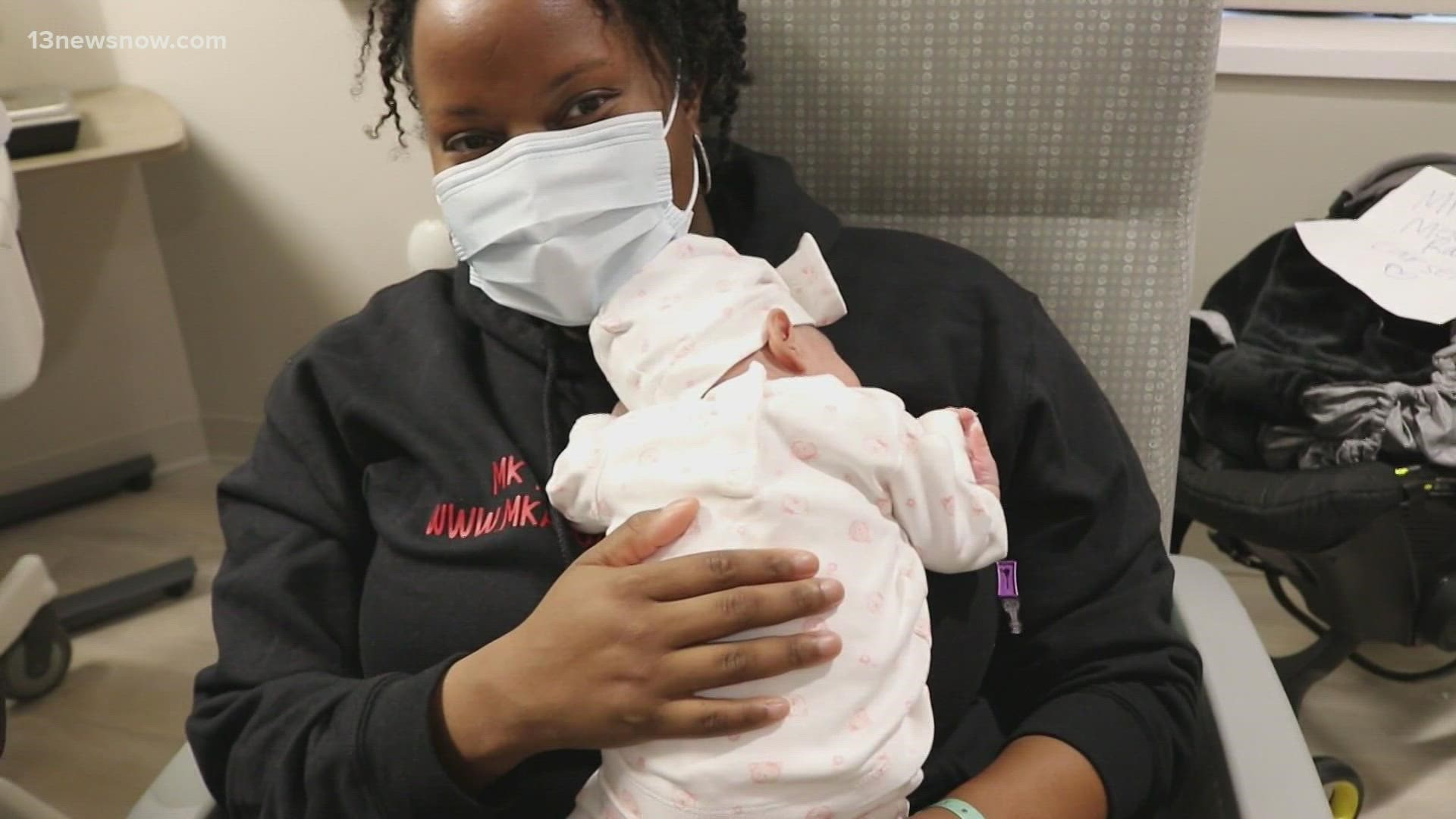NORFOLK, Va. — Sentara Norfolk General Hospital's neonatal intensive care unit (NICU) just got quieter, brighter, and more comfortable for sick babies and their parents.
NICU facilities take care of babies who are born prematurely, have difficult deliveries, or have an illness when they're born. Babies in the NICU can require lots of medical equipment to adjust to the world, but it's also a place parents have to spend a lot of time, to bond with their infants in their earliest stages of life.
Sentara Norfolk General's NICU unit moved to a new ward in the hospital and jumped from 47 to 57 beds, now with more private and semi-private rooms.
"There's more square footage per bed space, they're able to have more privacy and connecting with their baby. The parental bonding time with a baby is important for both the baby and the parents," said Sentara NICU Clinical Manager Dr. Christina Zimmer.
Zimmer said the extra space allows new moms and their babies to recover with more space.
"Because we're first-time parents. It's just an opportunity to learn from your baby and to just be in the area where your baby gets the care that they need," said Marquita Raynor, a mother in the NICU.
Dale Gauding, a spokesman for Sentara Healthcare, said the new setup will help babies thrive.
"It offers private and semi-private rooms, each with an outside window and natural light to help with development of circadian rhythms. Private rooms have sleep sofas for parents who want to stay with their newborns around the clock," he said. "They offer a quieter environment with fewer sounds of alarms and other babies crying, which reduces over-stimulation."
Those changes, along with the seven nursing stations, space for four milk techs, increased ventilator capacity and remote telemetry systems, mean babies will have better options for care as they recover from a rough start.
Dr. Zimmer said their private rooms increase the ability to care for infants dealing with neonatal opioid withdrawal syndrome (NOWS).
“The ‘Eat, Sleep, Console’ method can help us reduce the amount of medication required to help addicted newborns recover,” she said.
Zimmer said this facility would mean a leap forward for patient and family experience.

